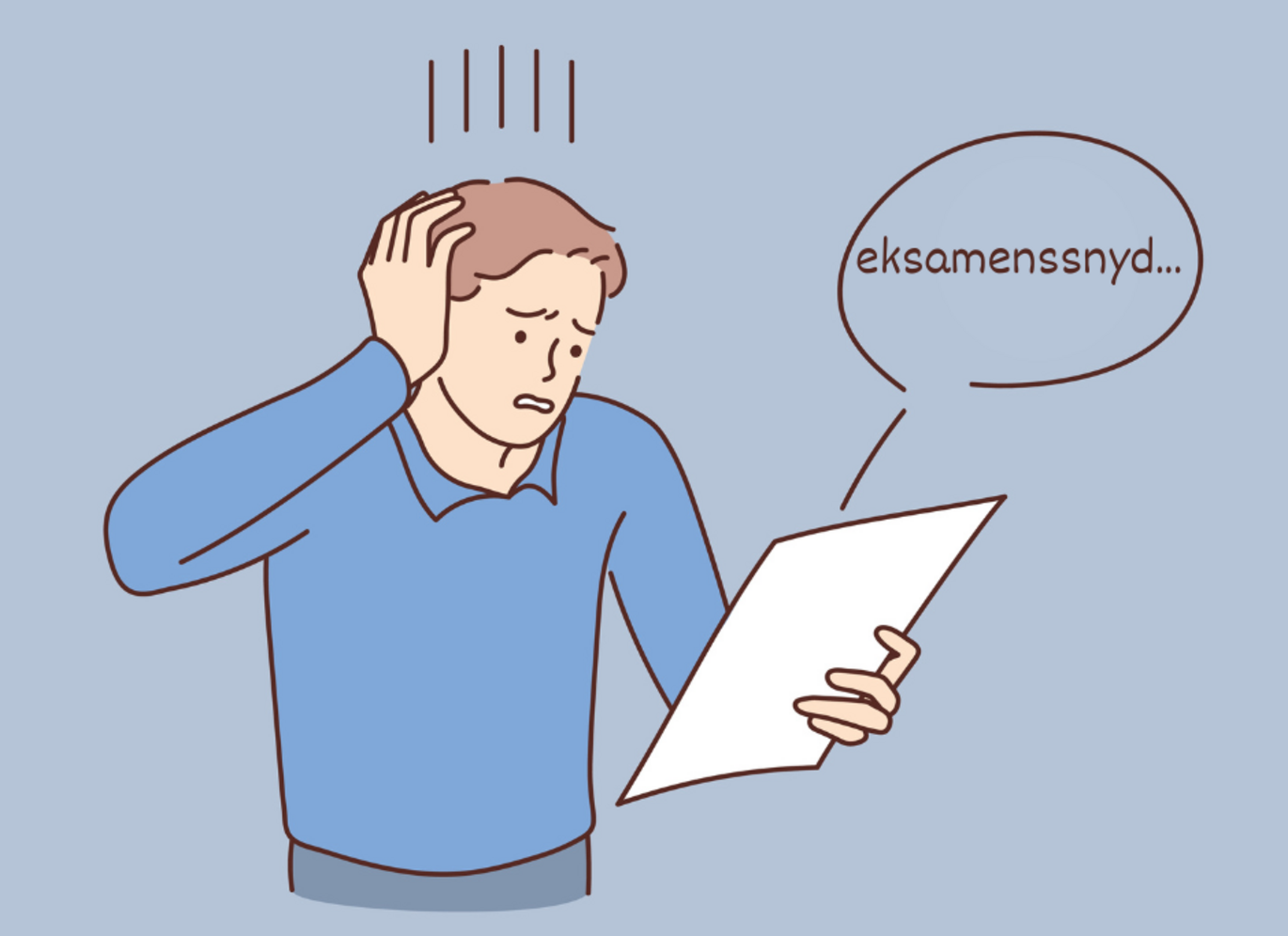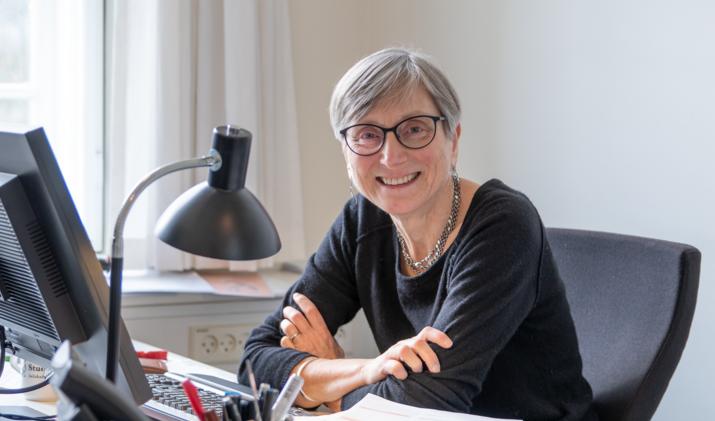Are you completely on top of the exam rules? More than 200 cases of exam cheating last year – many are due to ignorance
Aarhus University is launching a new campaign to help prevent exam cheating. In 2021, there were 207 cases of exam cheating at AU, while there have been 117 cases so far in 2022. Media science student Jacob Siggaard Rygård knows what it is like to be caught cheating. By mistake, he handed in the wrong exam paper. It set off a lengthy process.

After only a few clicks of the mouse, media science student Jacob Siggaard Rygård could hand in his 12-page exam paper in Studium Generale last year, and then the summer holidays could begin.
However, when the exam results began to arrive in the inboxes of his fellow students over the summer, all he got was an unpleasant message from AU: Your exam paper cannot be approved because parts of it have been deemed as plagiarised.
More than 200 students got a similar message last year.
In fact, AU processed 207 cases out of 245 reported cases of cheating at the university in 2021, and this has now prompted AU to launch a campaign to counter the problem. The guidelines needed an update after the Covid-19 pandemic, and the goal is to get more people to familiarise themselves with the rules. So says Lise Wogensen Bach, who is in charge of the working group behind the campaign and is vice-dean for education at Health.
"The guidelines were getting out of date and needed a thorough rewrite. During the pandemic, we saw other forms of cheating than previously, and these had not been taken into account in our guidelines. They were mostly associated with group work and sharing notes," says Lise Wogensen Bach.
Illegal collaborations and plagiarism
Exam cheating can take many forms. For example, students can be caught plagiarising if they reuse text from old exam papers without citing the source properly. This happened 15 times last year. It is also plagiarism if you cite someone directly without indicating so. Last year, there were 49 cases of students illegally plagiarising an external source without citing the source. Minor details can have major consequences.
A closer look at the numbers behind exam cheating at AU reveals that illegal collaboration was the most common type of cheating in exams in 2021. These are some of the cases that Lise Wogensen Bach refers to when she talks about cheating during the pandemic, when some exams had to be taken at home, which meant the students could talk to each other during the exam.
The second-most common form of exam cheating was plagiarism, either of an external source or of a previous exam paper. Plagiarism of other people's exam papers and illegal collaboration are also among the most common forms exam cheating this year.
Last year, Aarhus University processed 207 cases of exam cheating out of a total of 181,093 exams taken by 32,662 students. A total of 245 cases were reported, but 38 cases were dismissed.
In 2022, as of 9 November, a total of 132 cases of cheating have been processed. None of the cases in 2021 or 2022 have, so far, ended with the student being expelled from the university.
In most cases the student had their exam annulled, while in others, a warning was given and the relevant ECTS credits taken from the student.
Lise Wogensen Bach: Cheating is often due to ignorance
Lise Wogensen Bach stresses that the campaign focuses on helping students to understand the academic conventions and code of conduct early on, and that it should not be perceived as a mere reproach of students. She believes that only very few students cheat intentionally. Often, students are unaware that their actions are considered as cheating.
"I'm convinced that in the vast majority of cases, cheating is due to ignorance about the conventions of academic writing. It's something that happens if you're under pressure, for example if you decide to borrow someone else’s notes at the last minute, or if you're confused about the rules," says Lise Wogensen Bach.
Student reported for cheating in exam: It felt like tearing a ligament!
Jacob Siggaard Rygård, a fifth-semester media science student, knows what it is like to be reported for cheating.
During his second semester, he accidentally handed in the wrong document for his Studium Generale exam and was reported for plagiarism. His reason for the mistake was that when he cleaned the desktop of his computer, he accidentally switched the file names of his exam paper and a PDF file with sample exam papers, which the lecturer had sent to the students before the exam.
Jacob Siggaard Rygård had to explain himself to Educational Law, and after a processing time of six to eight weeks over the summer, Educational Law accepted his explanation and that it was a mistake, not cheating. As a result, it only counted as a failed examination attempt, but as the re-examination was in August, when he would be attending Summer University and also had another exam, he chose to submit a blank paper for the re-examination. And since you have to pass Studium Generale before you can start your third semester – and you normally only have two attempts at Studium Generale – Jacob Siggaard Rygård had to apply for dispensation to take yet another re-examination and start his third semester without knowing for certain whether he would be granted dispensation and would be able to continue his media studies degree.
He was granted dispensation, and in August 2022 he passed Studium Generale – 15 months after his first attempt.
About the unfortunate mistake that caused the lengthy process, he says:
"It felt a bit like I had torn a ligament in a football match. Why did this have to happen to me? I was suddenly put back many months in my programme," he says.
Facts:
Learn more about the rules here:
The AU webpage on exam cheating, which you can find here, has more about what constitutes exam cheating, what you should know before you take an exam, and what you should do if you are reported for having cheated in an exam.
Where to find help if you are experiencing exam pressure:
A number of bodies at AU and outside AU offer help for students who feel under pressure to the extent that they are tempted to cheat on their exams: the Student Counsellors' Office, the University chaplains, the Special Educational Support Team, the Student Counselling Service and Study Choice Guidance Denmark.
Take stock and breathe
Even though it was just an unfortunate mistake, he has learned that students reported for cheating in an exam have to seek help and guidance on their own initiative if they want to get through it.
"You have to take stock and breathe so that you can see things more clearly. Keep asking for answers and advice from others, because you won't know what to do yourself. It's not a situation you expect to be in. I went to the student counsellors' office and reached out to the lecturer who had read my paper, rather than trying to understand everything by reading about it on the net. I think au.dk is often very confusing.
Having gone through the process, I regard AU as passive. You have to proactively seek out possibilities yourself. Ultimately, you have to make it work yourself. AU won’t do it for you, and that’s understandable. There is no way AU can be everybody’s babysitter," says Jacob Siggaard Rygård.
He contacted the teacher who had read his paper a few days after he received the message about plagiarism. He remembers the conversation, because it encapsulated the situation perfectly.
"I think my teacher put it very well: You’ll probably have to go through a difficult period now waiting for your case to be processed, and there is no other lesson to be learned from this than it’s important to think twice before clicking the 'submit' button," says Jacob Siggaard Rygård.
Students in a vulnerable situation
Lise Wogensen Bach acknowledges that students are in a vulnerable and difficult situation when they are reported for exam cheating. They have to manage a lot of the process themselves.
"There’s no supervisor to support the student. It’s true that students are often left to their own devices to take care of things if they have been accused of cheating, and it’s always a terrible situation for the individual student. They’re in a vulnerable situation, which can be difficult, and can make you feel very alone. And the system can be rather rigid and sluggish."
At the same time, however, she also explains that it is only natural for a university to place responsibility with the student.
"It's about striking a balance. Students are adults, who need to be able to take care of their own situation. But of course I understand that it would be nice to have someone to guide you. Some kind of counselling option. At the moment, there is no one to officially support students," says Lise Wogensen Bach.



